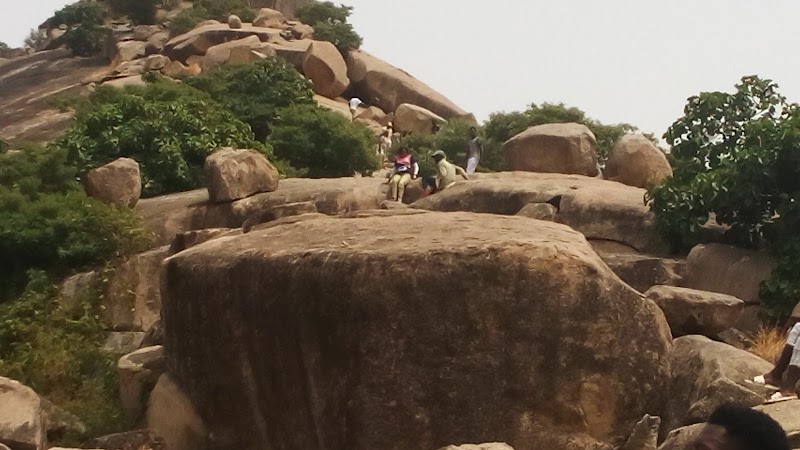Join Gusau's festivals to experience the heart of Hausa culture firsthand, where traditional music, dance, and crafts come alive in a setting rich with history. This guide prepares you for an immersive cultural adventure filled with vibrant festivities and practical tips to navigate the celebrations.
Dress Smart for the Festivities
Wear lightweight, breathable clothes paired with comfortable sturdy sandals to handle crowded market streets and uneven pathways.
Stay Hydrated
The Zamfara climate can be hot and dry during festival seasons; carry refillable water bottles and drink often to prevent dehydration.
Hire a Local Guide
A knowledgeable guide can provide rich cultural context and help navigate the best timings and locations for festival events.
Time Your Visit
Plan your trip around major festival dates linked to the Islamic calendar, with early mornings best for quieter exploration and afternoons for parades and performances.
Experiencing Hausa Heritage: Cultural Tours During Festivals in Gusau, Zamfara
Gusau, the heartbeat of Zamfara State, invites you to step directly into the rich world of Hausa culture through its vibrant local festivals. These celebrations bring the past alive with rhythms, colors, and traditions fiercely held by generations. During these festival periods, the town transforms into an open-air classroom where every procession, dance, and craft stalls tell stories of ancient kingdoms and community pride.
Traditional Hausa attire—bold, embroidered fabrics and flowing robes—adorn the crowd, punctuated by the steady beat of talking drums and the melodic call of the kakaki trumpets. Here, artisans display their handiwork, from leather crafts to calabash carving, offering not only souvenirs but insight into painstaking cultural methods passed down over centuries.
The festival strolls through Gusau’s bustling markets lead adventurers past spice vendors whose aromas mingle into the air, daring visitors to taste the intense richness of Hausa cuisine. As you navigate between performances of vibrant dances and solo griots recounting epic tales, practical details meld seamlessly with the sensory experience. Arrive prepared with lightweight, breathable clothing and sturdy sandals to handle uneven streets and packed crowds.
Most festivals happen annually aligned with the Islamic calendar, including Eid celebrations and the Durbar, a majestic horse-riding display that demands respect for tradition and skilled horsemanship. Understanding the timing and the energetic flow of these gatherings is crucial. Early mornings feature quieter workshops and markets, affording a chance to absorb without the crush. Afternoons bring motorized parades and musical showcases that fill the streets with purposeful motion and community spirit.
Travelers should consider Gusau’s climate when planning visits: the dry season offers clearer skies and easier exploration, while the rainy season paints the landscape lush but adds obstacles including muddy paths and sudden downpours. Hydration is essential, and portable water bottles will quickly become your best companion.
Accompanied by knowledgeable local guides, the festival tour becomes an intimate encounter where questions are welcomed and history explained, not a rushed spectacle but a respectful engagement with culture fiercely itself. This approach turns every moment into a shared adventure—one grounded in genuine understanding and mutual exchange.
For those seeking an experience blending spectacle with substance, Gusau’s cultural festivals offer a journey through Hausa heritage that is as practical as it is thrilling. The rhythm of these celebrations beats strong—welcoming, demanding attention, and forever teaching.
Nearby Trips
All Adventures
Boat Charters
Water Activities
Adventures near Gusau
Discover the unique and memorable adventures that make Gusau special.
Frequently Asked Questions
When are the main festivals held in Gusau?
Main events align with the Islamic calendar, notably Eid al-Fitr and Eid al-Adha, along with the Durbar festival occurring shortly thereafter. Dates vary each year but typically fall between late spring and early fall.
Is it necessary to hire a guide for the cultural tours?
While not mandatory, a local guide enriches the experience by explaining Hausa customs, translating cultural performances, and steering visitors safely through bustling crowds and markets.
What language is primarily spoken during festivals?
Hausa is the dominant language, but many guides and younger locals speak some English, easing communication for travelers.
Are festival events family-friendly?
Yes, many activities and markets are suitable for families. However, some parades and large crowds may require careful supervision of young children.
What should visitors avoid during the festivals?
Avoid disrespecting religious customs, taking photos without permission of people or sacred events, and straying into restricted areas to honor local traditions.
How can I prepare for the weather during festival season?
Expect hot dry days with cooler evenings, especially in winter. Dress in layers, bring sun protection, and drink plenty of water to stay comfortable.
Recommended Gear
Breathable Clothing
Choose loose, light fabrics to stay cool in Zamfara's dry heat during festivals.
Sturdy Sandals
Protect feet from uneven paving and dirt roads while allowing breathability.
Portable Water Bottle
Stay hydrated amid the dry climate and energetic festival activities.
Sunscreen and Hat
Protect skin from strong equatorial sun, especially during afternoon parades.
Local Insights
Hidden Gems
- "The quiet rooftop terraces of central Gusau offer surprising views over the festival crowds and surrounding Sahel landscape."
- "Visit the nearby Dimka Hills for panoramic vantage points overlooked by few tourists."
Wildlife
- "Watch for the graceful Sahelian bird species such as the Blue-naped Mousebird and Chestnut-backed Sparrowhawk flying above the town’s outskirts."
History
"Gusau’s evolution from a small Hausa settlement into a regional capital is deeply connected to caravan trade routes that enriched its cultural fabric and gave rise to its enduring festivals."

